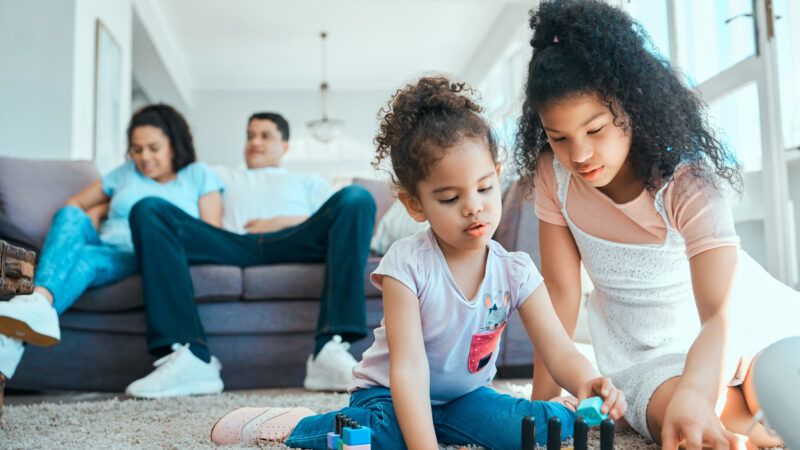New Hampshire's Bad Parenting Bill Is a Nightmare
"I happen to be a tax-and-spend liberal," says Richard Wexler, "but this bill provides not one iota of additional help."

The New Hampshire legislature is considering a parenting bill that would make it easier for the government to investigate parents for child abuse or neglect. It accomplishes this by removing the word "safety" from the legal definition of child abuse and replacing it with "physical, emotional or psychological welfare."
That could be almost anything, of course.
"I happen to be a tax-and-spend liberal," Richard Wexler, executive director of the National Coalition for Child Protection Reform, tells Reason. "But this bill provides not one iota of additional help. It simply turns the [Division for Children, Youth and Families] into the 'well-being' police."
House Bill 553 has 14 sponsors from across the political spectrum. State Rep. Alicia Gregg (D–Hillsborough), who filed the bill, told the New Hampshire Bulletin that she believes the state needs an "updated definition of what child abuse and endangerment looks like." She has worked with domestic abuse victims and hopes the bill will allow the state to set aside its "hesitancy to step in" and intervene "before we have a crisis."
But New Hampshire already has "robust and effective" laws to protect children, says Will Estrada, senior counsel at the Home School Legal Defense Association. In fact, New Hampshire removes children from their families at a rate nearly double the national average, says Wexler.
Overall, 37 percent of American children will be investigated by child protective services sometime before age 18. For black kids, that number is 53 percent.
The proposed law does contain some good provisions for the children who are removed from their families, making sure there are "frequent" reviews of their case, and that children are returned home as soon as possible in cases of overreach. But its vagueness would allow state intervention not only when a child is in imminent danger—which most of us would want and is already the case—but whenever there is a "risk to a child's psychological or emotional well-being…or mental health."
The bill also stipulates that "exposure of a child to verbal abuse, or psychological maltreatment directed at the child, a sibling, the other parent or significant other or another person living in the home" could also impair a child's well-being, opening the door to investigating parents who fight or shout at one of the kids.
Finally, the law also comes down hard on "adultification," a new term for making a child take on some of the responsibilities an adult should presumably be doing for them. This happens in incredibly dysfunctional families as well as in incredibly functional ones—say, when a child of immigrants proudly translates for their parents at the doctor's office or the auto repair shop.
Looking back on any tragedy, there's always the feeling that someone ought to have intervened sooner. But inviting the state to intervene in many, many more cases—and perpetually expanding the definition of abuse—will cause more problems than it solves.


Show Comments (14)